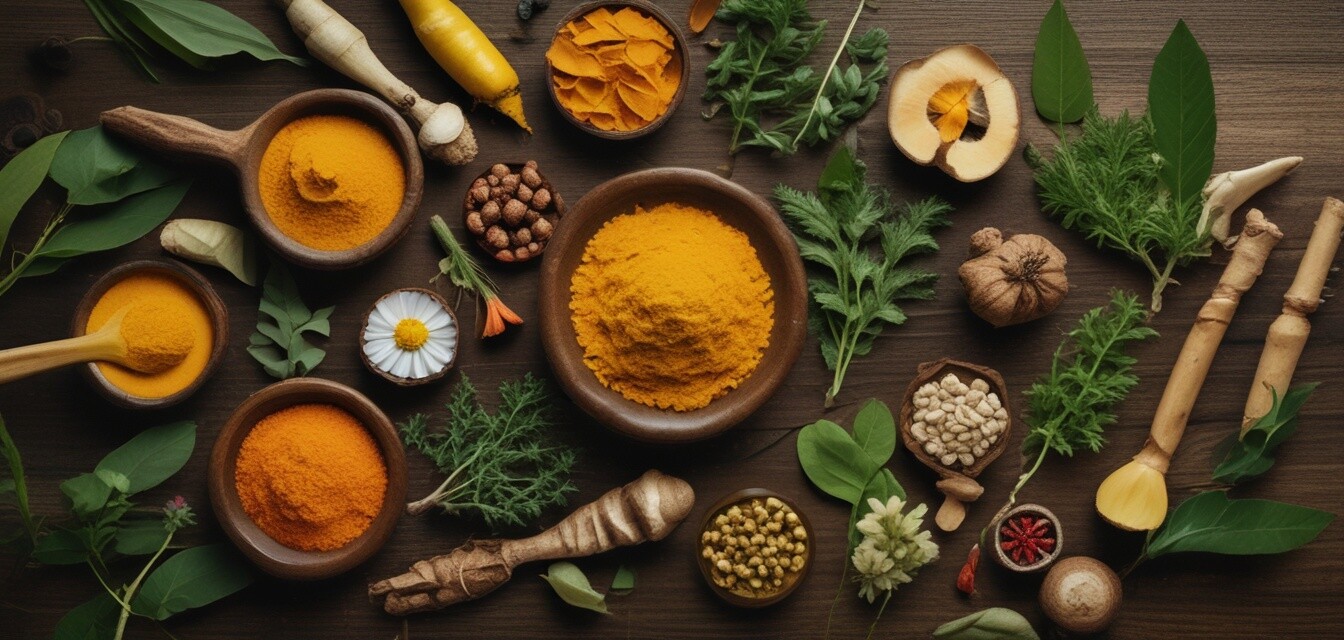
The Role of Herbal Ingredients in Preventative Health
- Herbal ingredients are gaining popularity as a vital part of preventative health strategies.
- These botanicals can offer unique benefits ranging from enhanced immune function to improved overall well-being.
- Understanding the diverse types of herbal ingredients can help consumers make informed choices.
- Ethically sourced herbal products contribute to sustainability and environmental health.
- Staying updated on emerging trends in herbal supplements can enhance personal wellness strategies.
The world of health and wellness is rapidly evolving, and one of the most significant developments in recent years has been the growing recognition of herbal ingredients in preventative health. As more individuals seek natural and holistic methods to maintain their well-being, herbal ingredients have found their way into everyday discussions about nutrition and health management.
What are herbal ingredients?
Herbal ingredients encompass a wide variety of plant-derived substances used for their health benefits. These ingredients are often sourced from leaves, roots, flowers, and seeds of various plants. They have been integral to traditional medicine for centuries and are now finding a place in modern health practices as consumers lean towards preventative approaches to wellness.
Benefits of herbal ingredients in preventative health
Herbal ingredients can play several key roles in overall health. Here are some common benefits associated with these natural wonders:
| Herbal Ingredient | Potential Benefit |
|---|---|
| Turmeric | Rich in antioxidants, supports general health. |
| Ginger | May aid digestive health and soothing inflammation. |
| Ginseng | Often linked to improved energy and vitality. |
| Chamomile | Commonly used for its calming effects. |
| Echinacea | May support immune system function. |
Different types of herbal ingredients
Herbal ingredients can be categorized based on various factors such as their origin, usage, and method of preparation. Some categories include:
- Adaptogens: Herbs like ashwagandha and rhodiola that help the body adapt to stress.
- Antioxidants: Ingredients such as green tea extract known for their properties that combat oxidative stress.
- Digestive aids: Herbs like peppermint and fennel that promote healthy digestion.
- Immunomodulators: Herbs that help modulate the immune system, such as elderberry and reishi mushrooms.
Trends in herbal supplementation
As consumers become more health-conscious, the demand for herbal supplements has surged. This can be seen across various sectors of the marketplace. Here are a few trends worth noting:
1. Organic and sustainable sourcing
There is an increasing emphasis on sourcing herbal ingredients in an eco-friendly manner. Products labeled as organic are gaining traction, as consumers show preference for supplements that are responsibly harvested. The ethics behind sourcing not only affect the quality of the products but also contribute to sustainable agricultural practices.
2. Personalization of supplements
People are now seeking personalized nutrition solutions, leading to a rise in supplements designed specifically for individual needs. This trend underscores the understanding that herbal ingredients can be tailored for better effectiveness, creating a more customized health strategy.
3. Scientific validation
The demand for research-backed herbal supplements is on the rise. Consumers are becoming more educated about what they put into their bodies, and they seek products that are supported by scientific studies. This has prompted many manufacturers to invest in clinical research to validate their claims.
How to incorporate herbal ingredients into your routine
Incorporating herbal ingredients into your daily routine can be simple and enjoyable. Here are some practical tips:
- Start with teas: Herbal teas are an easy way to start exploring the benefits of herbs. Consider trying ginger or chamomile tea.
- Add to smoothies: Integrate herbal powders, like spirulina or wheatgrass, into your morning smoothie for an added health boost.
- Use supplements: Look for high-quality capsules or tinctures that contain the herbal ingredients you are interested in.
- Cook with herbs: Enhance your meals with fresh herbs like basil, oregano, or turmeric for flavor and health benefits.
The importance of quality and sourcing
When choosing herbal supplements, it’s essential to consider quality and sourcing practices. Products that are ethically sourced often reflect a commitment to sustainability and community support. Be sure to do your research and choose reputable brands, focusing on those that provide transparency regarding their ingredient sourcing.
If you're interested in exploring further, check out our:
Pros
- Natural alternatives to synthetic supplements.
- Potentially lower risk of side effects.
- Supports holistic wellness approaches.
- Can contribute to sustainable agricultural practices.
Cons
- Quality can vary greatly between products.
- May interact with prescription medications.
- Lack of standardization in dosages and compounds.
- Not all claims are scientifically substantiated.
In conclusion, the role of herbal ingredients in preventative health is becoming increasingly recognized. By understanding the benefits, trends, and ways to incorporate these ingredients into your life, you can take proactive steps towards achieving your wellness goals. As you navigate this journey, always prioritize ethical sourcing and scientific backing to make informed choices.